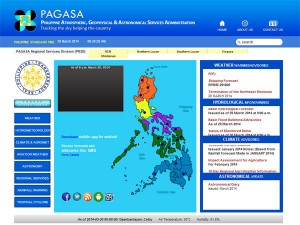Weather bulletins hard to grasp–survey
MANILA, Philippines—Most people don’t really understand weather bulletins.
The public still finds them “too scientific and too general” to be understood, according to a recent survey by the Department of Science and Technology (DOST).
The DOST found that it was not enough to translate weather bulletins from English to the vernacular. The weather advisories should also translate terms into words that the public can understand, the DOST said.
After Supertyphoon “Yolanda,” a debate came up on whether the Philippine Atmospheric, Geophysical and Astronomical Services Administration should have used a more familiar term like “tidal wave” instead of the unfamiliar “storm surge” to warn against gigantic waves that may be whipped up by typhoons.
Storm surges are huge waves from the sea blown inland by strong winds during a typhoon, while a tidal wave is generated by an underwater earthquake or volcanic eruption.
Article continues after this advertisementAdmitting it had to improve its weather advisories, the DOST disclosed that it had made a study on the public’s understanding and appreciation of weather information.
Article continues after this advertisementThe study, which was conducted in Metro Manila, “shows that public knowledge was insufficient to fully understand concepts on weather, climate and disaster issues,” it said.
The study was conducted by the DOST’s Science and Technology Information Institute and Project NOAH (Nationwide Operational Assessment of Hazards) communications team.
Those asked showed a “low rate of comprehension” because they found that weather information remained too scientific and too general.
The DOST said it had to word its weather bulletins in layman’s terms.
This “does not only mean translating vital information from English to the vernacular, but also making the people understand terminologies and concepts so that they can understand the possible impact to them and make informed decisions,” the DOST said.
The majority of those surveyed relied on television as their primary source of weather information.
RELATED STORIES
Nice, sunny weather expected this week–Pagasa
New warning signals eyed for storm surges
